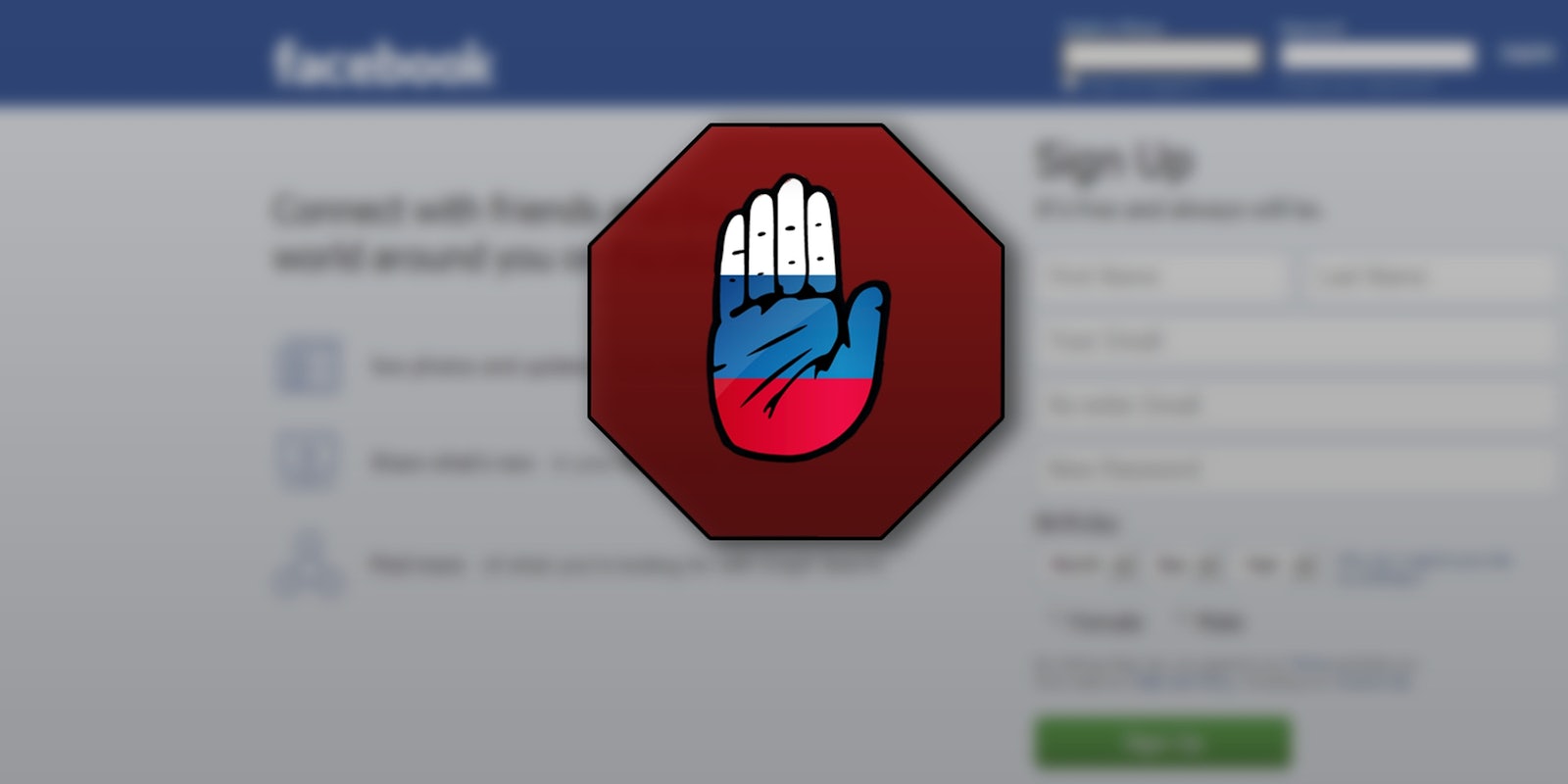The Russian Pirate Party has completed its yearlong study of sites blacklisted under the country’s controversial blacklist law.
And the results aren’t pretty.
It found that in the yearlong period beginning at the beginning of November 2012, when the law first took effect, the country wrongfully blocked 83,215 sites.
The blacklist law, in theory, would allow the government’s Rospotrebnadzor agency, devoted to consumer and human rights, to quickly censor sites that include child pornography or promote drugs or self-harm.
But in practice it’s resoundingly problematic, ranging from incompetence at best to utter censorship at worst. In the past year, it’s temporarily blacklisted Facebook over a pro-suicide fan page; YouTube over a video that shows viewers how to use makeup to create the illusion of a slit wrist; and LiveJournal, Russia’s most popular blogging platform, apparently in a misguided attempt to censor a single blog there.
That’s not all. The Pirate Party claims other head-slapping instances of government overreach include banning a game that used the word “drug” to describe characters levelling up, 15 Wikipedia pages that describe behaviors the Rospotrebnadzor prohibits, and an acclaimed Australian safety video called “Dumb Way to Die.”
The Russian Pirate Party, it should be noted, is not a registered political party in Russia, though not for lack of trying. In January 2013, as well as the year before, Russia’s Ministry of Justice rejected the party’s application for legitimacy, citing the fact that its name referred to an illegal activity.
It plans to present the study Saturday at a Wikipedia conference in Smolensk.
H/T Ria Novosti. | Illustration by Fernando Alfonso III


